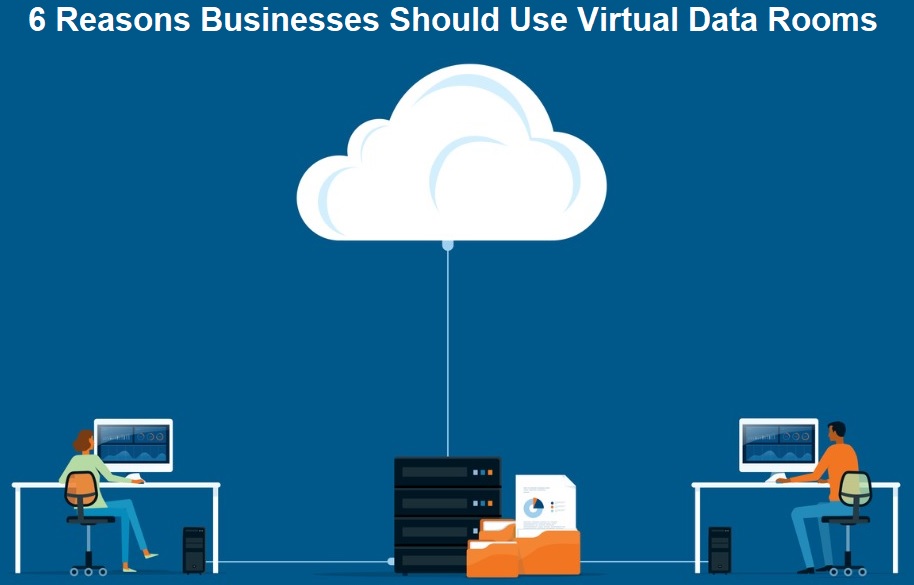Virtual Data Rooms, Explained: The Benefits and Uses
A Virtual Data Room (VDR) allows multiple parties to share and collaborate on a deal’s critical information through a secure and encrypted web connection. This is what makes VDRs ideal for those working on a due diligence process and other transactional work.
What are the Benefits of Virtual Data Rooms?
A VDR is the most secure and user-friendly way for organizations that wish to streamline document sharing efficiently. It is a great solution for confidential business data with various advantages which are given as follows: This software:
● Secures the company's data efficiently;
● Provides secure data and document management;
● Allows access to multiple clients or users based on a set of rules;
● Runs on mobile devices;
● Allows uploading a large amount of data;
● Provides accurate searching functionality.
Because of these advantages, many business clients, owners, managers, suppliers, and acquirers choose VDR to secure the company’s data effectively. There are so many other reasons and features to use VDR software instead of the usual file-sharing tools or physical data rooms. Look at virtual data room comparison to know more about different software providers.
● Reliability: VDR can be accessed on the cloud which is more reliable than using a traditional mainframe computer. If a computer is not working then users can access their data or software stored in VDR.
● Security: We have obtained world-renowned data management security certifications, so you can keep calm and be sure all your projects hosted at VDRs are protected.
● Accessibility: Virtual Data Rooms can be accessed by authorized people from registered devices anywhere.
● Scalability: An online data room offers seamless data access without disruptions.
● Usability: VDR has an attractive and easy-to-use interface as well as good UX.
How Does a Virtual Data Room Help You?
1. Secure storage and sharing of business documents
Data rooms are primarily designed to securely store information. In M&A transactions, especially during due diligence, the seller must provide potential buyers or bidders with various company records. These records include the financial, corporate, personnel, and legal files of the company.
Almost all of these documents are strictly confidential, and it is important to store and share them securely, which is what virtual data rooms are for. The two-way authentication feature ensures that unauthorized access is restricted. Moreover, data can be transmitted in encrypted form.
2. Maintaining and ensuring the integrity of the customer base
Using a software product to create and maintain a single customer base helps:
● Create effective communication between departments of the company. That is, having access to a single customer base, employees of different departments can create and present to potential buyers a variety of service packages, as well as stimulate repeat sales.
● Save information about customers and the history of interaction with them, without being tied to a specific employee. That is, if an employee was fired, the information about his previous and current clients will remain with the company and the new employee can immediately start working with them.
● Attract attention and build relationships with the target audience (potential buyers, partners, team members) via tools different from SMS or electronic messages.
3. Communication between departments
One program contains an extensive toolkit for managing a company, i.e. modern CRM allows you to control and manage all parts of the business (plans, employees, client base, communication with the target audience, financial resources, documents, archives, time, official website, SMS and email newsletters, etc.). There is no need to install separate programs for each of the listed components, and therefore there is no need to spend money on their installation/maintenance.
4. Better cooperation and communication
Communication is the key to closing an M&A deal faster. One of the main reasons for delays in transactions is the inability of stakeholders to communicate in a timely and regular manner. This problem is easily solved with the help of virtual data rooms.
Online data room software makes it much easier for stakeholders to communicate openly and in private tabs. Best of all, stakeholders can access VDRs from anywhere in the world, even from their mobile phones. They can leave comments, take notes and evaluate the progress of the transaction at any time.
5. Easy to analyze and organize files
Modern online data room providers are implementing artificial intelligence (AI) to enhance VDR functionality as it helps to better organize and analyze data. Ultimately, this helps improve the workflow and allows the parties involved in the transaction to adapt to any changes or new information during the due diligence process. Not to mention, AI is helping companies collect valuable data for the future.
6. Reduced workload, no distractions
Virtual data rooms are nothing short of heaven for users like project teams as they relieve them of a huge workload. For example, data room software has amazing features that can greatly automate work and reduce your workload.
These features include bulk document drag and drop, automatic indexing, duplicate query elimination, full-text search, live link documents, reporting, and one-click task assignment. When these tasks are streamlined, project management teams can spend their time on other important tasks without being distracted.
Last but not least, electronic data rooms ensure that stakeholders stay up to date on all progress, changes, modifications, or new issues in a transaction.
Conclusion:
Dealmakers can protect all their information in a VDR, and then easily share, control, and track who accesses, edit or print a deal’s documents. Use a demo version to get your own experience of certain providers.








COMMENTS